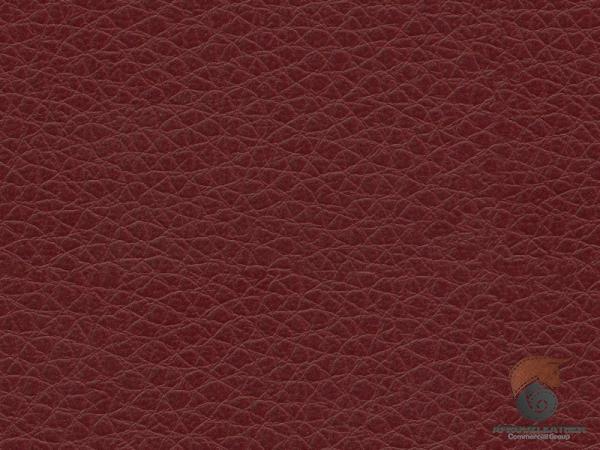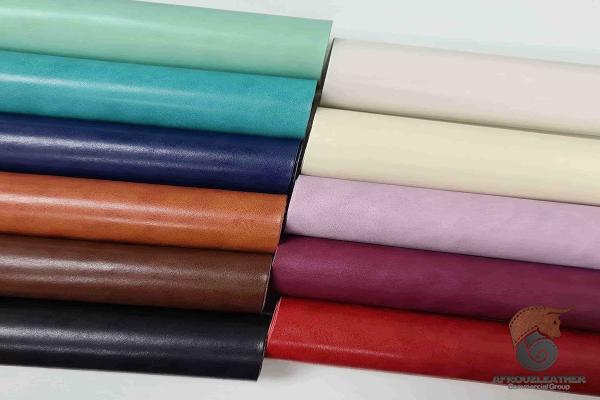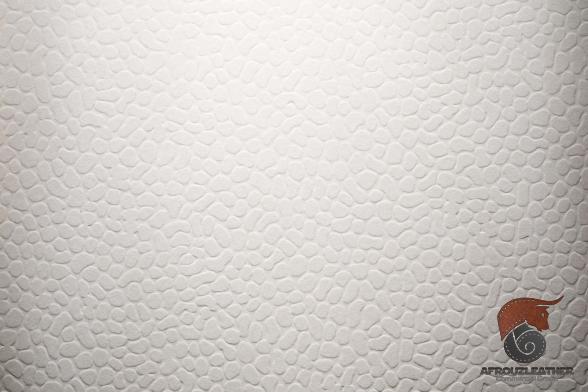Veganism and eco-consciousness are gaining momentum globally as more people seek sustainable alternatives to conventional products. In this context, vegan leather has emerged as an ethical and environmentally friendly substitute for traditional animal leather. Vegan leather sheets, composed of plant-based materials, provide a wide array of applications and benefits that align with the growing demand for cruelty-free and sustainable products. What is Vegan Leather? Vegan leather, also known as faux leather or synthetic leather, is a material created to replicate the look and feel of animal leather without utilizing any animal products. It is manufactured through various processes using plant-based materials, recycled synthetics, or a combination of both. The emergence of vegan leather has brought about significant advantages over traditional leather in terms of sustainability, production methods, and durability. Sourcing and Manufacturing: Vegan leather sheets are typically made from a variety of plant-based materials such as pineapple leaves, apple peels, and cactus leaves.
leather
 One popular plant-based material used in vegan leather production is Piñatex, which is derived from pineapple leaf fibers. This innovative material provides an alternative to leather by repurposing a waste product from the pineapple industry and reducing environmental impact. Another noteworthy plant-based material is apple peel leather, which is made from discarded apple waste. The remnants from apple processing are combined with other plant-derived components to create a durable and sustainable vegan leather substitute. Cactus leather, derived from the prickly pear cactus plant, is a relatively new development in the vegan leather industry. This material offers a unique texture and is known for its exceptional durability and softness. By utilizing cactus leather, manufacturers can offer a sustainable alternative to animal leather while preserving limited water resources as cacti require minimal water to grow. Production processes for vegan leather sheets vary depending on the materials used. Some methods involve combining plant fibers with a polyurethane or polyvinyl chloride (PVC) base, while others employ innovative technologies, such as 3D printing or microbial fermentation.
One popular plant-based material used in vegan leather production is Piñatex, which is derived from pineapple leaf fibers. This innovative material provides an alternative to leather by repurposing a waste product from the pineapple industry and reducing environmental impact. Another noteworthy plant-based material is apple peel leather, which is made from discarded apple waste. The remnants from apple processing are combined with other plant-derived components to create a durable and sustainable vegan leather substitute. Cactus leather, derived from the prickly pear cactus plant, is a relatively new development in the vegan leather industry. This material offers a unique texture and is known for its exceptional durability and softness. By utilizing cactus leather, manufacturers can offer a sustainable alternative to animal leather while preserving limited water resources as cacti require minimal water to grow. Production processes for vegan leather sheets vary depending on the materials used. Some methods involve combining plant fibers with a polyurethane or polyvinyl chloride (PVC) base, while others employ innovative technologies, such as 3D printing or microbial fermentation.
Specifications of leather
 The choice of production method can impact the final texture, strength, and appearance of the vegan leather sheets. Advantages of Vegan Leather Sheets: 1. No Animal Cruelty: The primary advantage of vegan leather sheets is that no animals are harmed in their production. This cruelty-free alternative helps to reduce the demand for animal leather, addressing ethical concerns related to the use of animal products. 2. Sustainability: Vegan leather sheets offer a more sustainable choice than traditional leather. By minimizing reliance on animal agriculture, the carbon footprint associated with deforestation, water use, and greenhouse gas emissions is reduced. Additionally, the use of plant-based materials and recycled synthetics promotes circularity and waste reduction. 3. Durability and Versatility: Vegan leather sheets are highly durable and can withstand wear and tear in various applications. They offer a versatile solution for upholstery, furniture, fashion accessories, automotive interiors, and more.
The choice of production method can impact the final texture, strength, and appearance of the vegan leather sheets. Advantages of Vegan Leather Sheets: 1. No Animal Cruelty: The primary advantage of vegan leather sheets is that no animals are harmed in their production. This cruelty-free alternative helps to reduce the demand for animal leather, addressing ethical concerns related to the use of animal products. 2. Sustainability: Vegan leather sheets offer a more sustainable choice than traditional leather. By minimizing reliance on animal agriculture, the carbon footprint associated with deforestation, water use, and greenhouse gas emissions is reduced. Additionally, the use of plant-based materials and recycled synthetics promotes circularity and waste reduction. 3. Durability and Versatility: Vegan leather sheets are highly durable and can withstand wear and tear in various applications. They offer a versatile solution for upholstery, furniture, fashion accessories, automotive interiors, and more.
buy leather
 4. Customization: Vegan leather can be produced in a wide range of colors, patterns, and textures, allowing for endless design possibilities. Manufacturers have the flexibility to create unique and personalized products that meet customer preferences and market trends. 5. Cost-effectiveness: Vegan leather sheets are often more affordable than animal leather due to their production process and the abundance of sustainable raw materials used. This affordability makes vegan leather an accessible option for both businesses and consumers. Conclusion: Vegan leather sheets offer a sustainable, cruelty-free alternative to traditional animal leather. By utilizing plant-based materials such as pineapple leaves, apple peels, and cactus, manufacturers can produce versatile, durable, and customizable vegan leather sheets. The growing popularity of veganism and environmental consciousness has led to increased demand for cruelty-free and sustainable products, making vegan leather sheets an attractive option across various industries. As technology and innovation continue to advance, the vegan leather market is expected to expand, providing a viable solution for those seeking ethically sourced and environmentally friendly materials.
4. Customization: Vegan leather can be produced in a wide range of colors, patterns, and textures, allowing for endless design possibilities. Manufacturers have the flexibility to create unique and personalized products that meet customer preferences and market trends. 5. Cost-effectiveness: Vegan leather sheets are often more affordable than animal leather due to their production process and the abundance of sustainable raw materials used. This affordability makes vegan leather an accessible option for both businesses and consumers. Conclusion: Vegan leather sheets offer a sustainable, cruelty-free alternative to traditional animal leather. By utilizing plant-based materials such as pineapple leaves, apple peels, and cactus, manufacturers can produce versatile, durable, and customizable vegan leather sheets. The growing popularity of veganism and environmental consciousness has led to increased demand for cruelty-free and sustainable products, making vegan leather sheets an attractive option across various industries. As technology and innovation continue to advance, the vegan leather market is expected to expand, providing a viable solution for those seeking ethically sourced and environmentally friendly materials.

Your comment submitted.